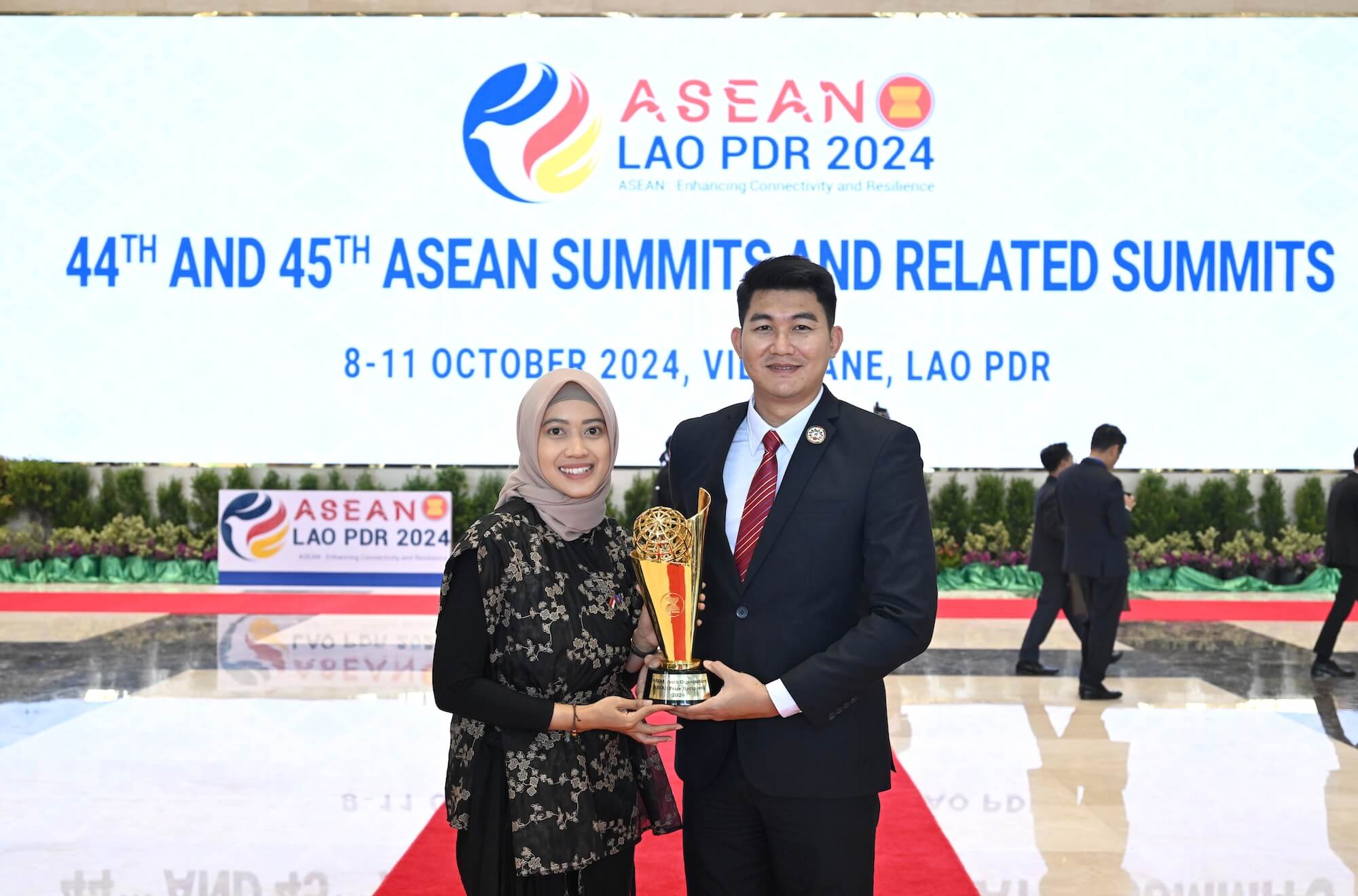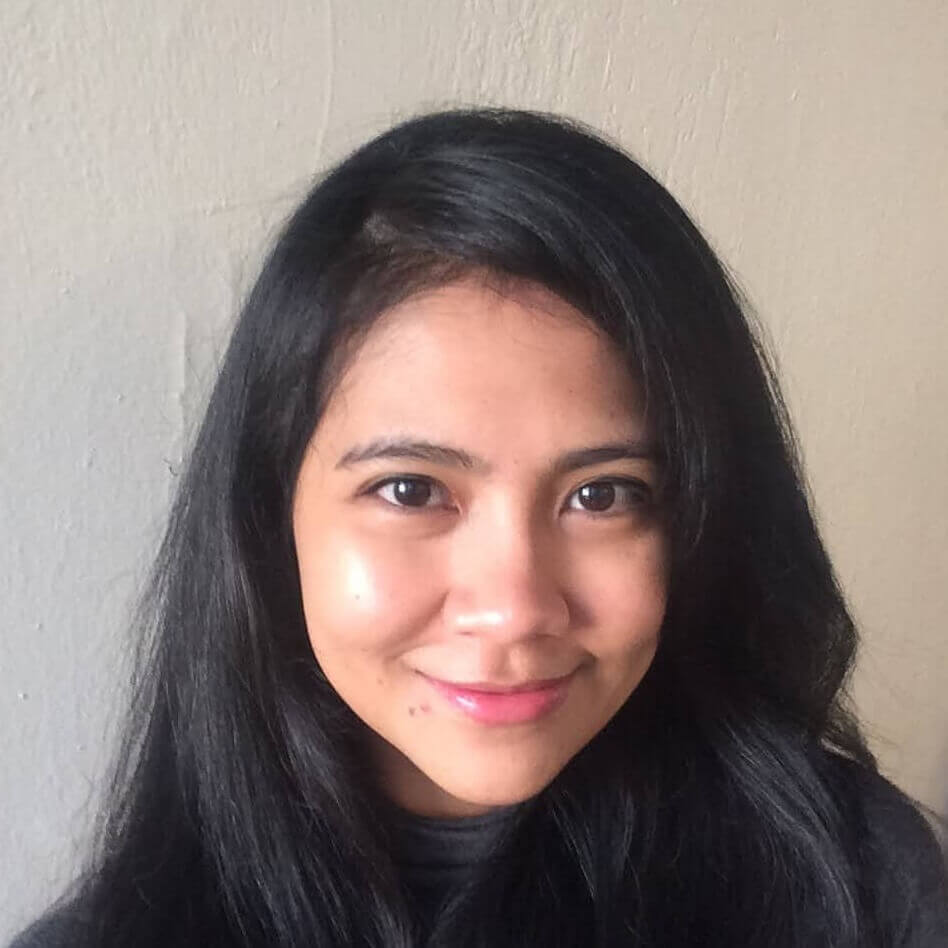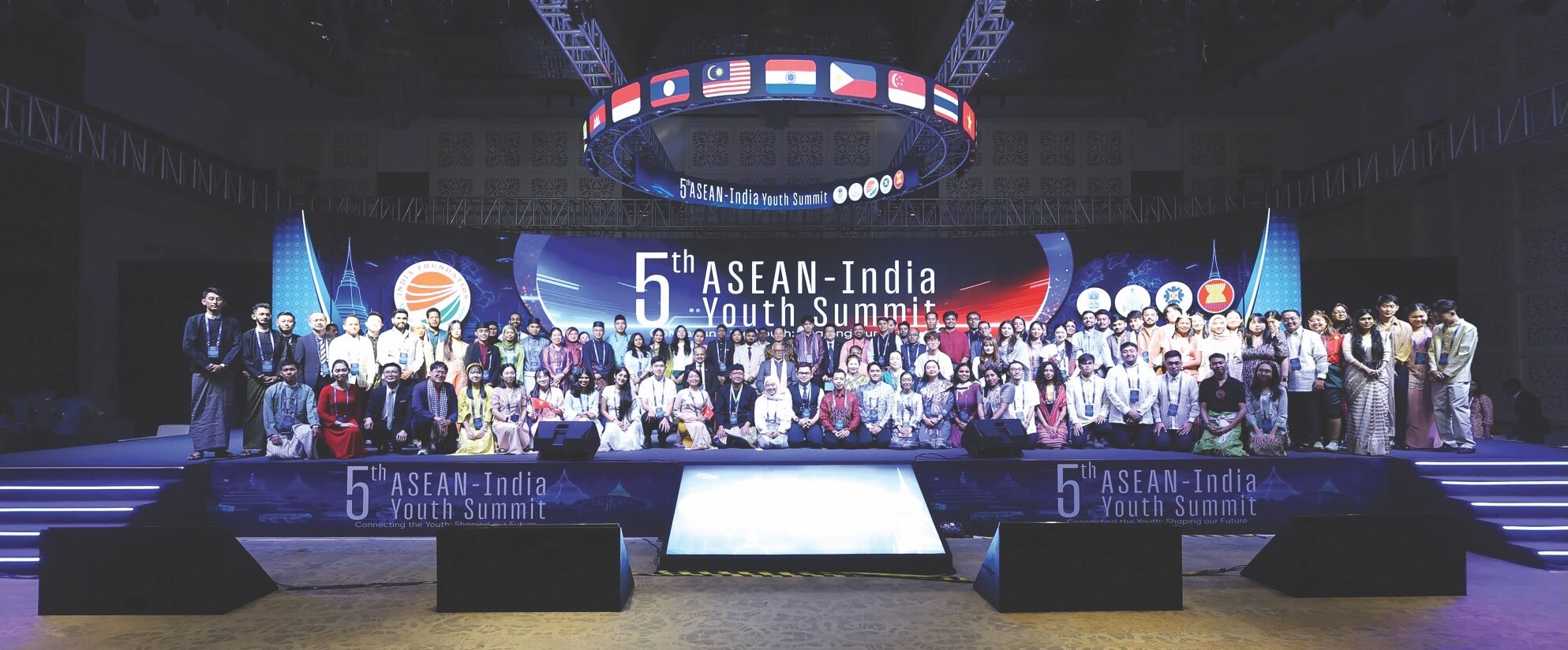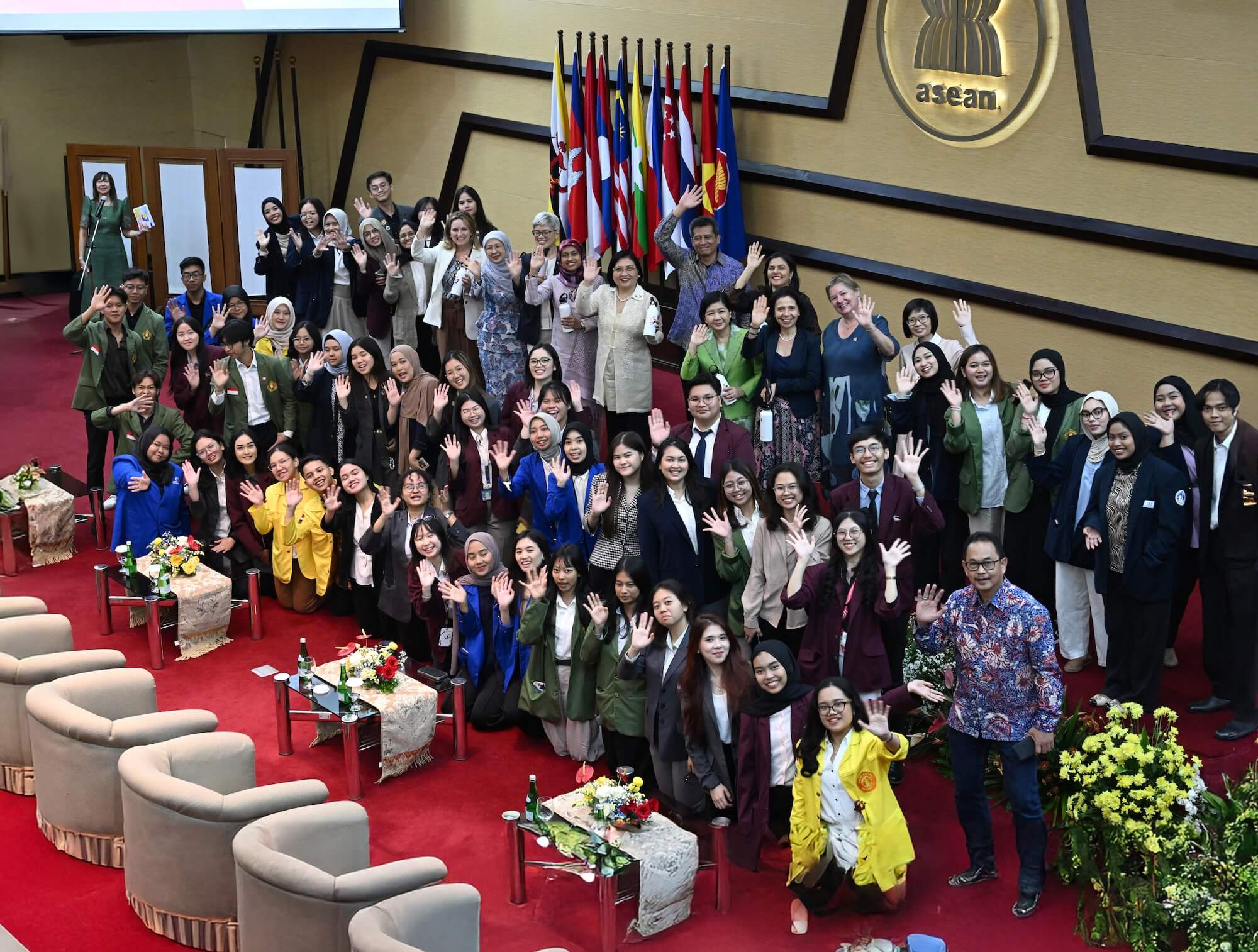




The ASEAN Youth Organization (AYO) is the proud winner of the ASEAN Prize 2024. A-Y-O is its abbreviation, but “ayo” is also a word in Bahasa Indonesia that means “let’s go!” or “come on!”. It is a fitting name for an organisation with roots in Indonesia that encourages collaboration and thrives on friendship among youth across Southeast Asia and beyond.
It is a common stereotype to assume that international youth organisations are led by students majoring in international relations at prestigious universities. However, one of the founders of the region’s leading youth organisation defies this notion, building AYO from a loosely knit social media group.
Senjaya Mulia, the 35-year-old founder of AYO, was born and raised in a small area in Central Java called Pudakpayung, located in the Banyumanik sub-district. Jay lived with his parents, who ran a toko kelontong [small grocery store].
“Starting from when I was in junior high school, I enjoyed tutoring children in my neighbourhood. Right after school, I would hang out and help them with their homework, teaching kids from kindergarten to junior high school,” Jay says to The ASEAN.
After graduating from a vocational high school majoring in Chemistry, Jay worked in a clothing store before boldly deciding to move to Thailand in 2010.
“I really like to travel. At that time, I thought about visiting Thailand. It turns out I loved it there; the people, their culture. So, I decided to take a language course and expand my stay,” he explains.
It didn’t take long for Jay to become fluent in Thai. During his stay, he also discovered ASEAN and the world of international relations.
“At that time, the ASEAN Secretary- General (SG) was from Thailand, SG Surin Pitsuwan. He was really passionate about raising awareness of ASEAN, especially in his homeland. In almost every school, we would find an ASEAN corner. Even taxi drivers knew what ASEAN was.”
Simultaneously, Jay’s circle of friends expanded to include people from across the ASEAN region. He also stumbled upon a Facebook page called ASEAN Community Page, which was dedicated to fostering regional friendships.
“This Facebook page was the embryo of what would later become the ASEAN Youth Organization,” he notes.
In 2013, one year after joining the Facebook page, Jay approached the group admins with an idea to expand their reach beyond social media.
“I wanted the page to have more meaning. What if we make it an organisation? Many of them refused the idea because they liked the Facebook page as it was, but one Cambodian friend supported me. He loved the idea as well.”
From there, Jay and his peers developed everything needed to establish an organisation.
“Then we held our very first in-person meeting. It was in Japan because they were the ones who sponsored us.”
Following the group’s first meeting in 2014, Jay received an invitation to visit the ASEAN Secretariat.
“We discussed a lot of things. At that time, we already had a strong online presence. Every time someone searches for ‘ASEAN Community,’ they will find our page. That’s why the ASEAN Secretariat kindly asked if we could change our name to avoid misunderstandings. That’s when we started calling ourselves the ASEAN Youth Organization because our focus is indeed on youth.”
Throughout these years, Jay has held various jobs and run consulting businesses, which he referred to as his “side jobs” while building AYO. “Often, my paycheck would go straight to AYO so we could fund our activities,” he adds.
Jay’s persistence and personal approach nurtured the organisation. Thanks to the power of friendship, the organisation grew larger, with members across the region. In 2018, AYO hosted its first official ASEAN Youth Conference in Singapore and registered its enterprise arm, AYO Social Enterprise. The establishment of this enterprise arm marked a turning point for the organisation, particularly in its efforts to achieve greater sustainability.
“Before 2018, our activities were mainly small charity projects. For example, we went to rural areas and organised charity events to support orphanages. Much of what we did relied on support from our own members. However, after establishing AYO Social Enterprise, we were able to create more sustainable activities. In 2020, we started having more projects.”
Starting with a Facebook page with 50,000 followers, AYO now has more than 600,000 followers across its platforms, with chapters in all 10 ASEAN Member States, as well as in Japan, China, India, Australia, and South Korea.
“We hold open recruitment every year, with thousands of youths across ASEAN countries applying. Our core team itself includes around 400 young people,” says Jay.
In addition to its enterprise arm, AYO has introduced several initiatives, including AYO Academy, AYO Research Centre, AYO Enviro, and AYO Post.
“These initiatives were created to provide a platform for AYO members with different interests and expertise. For instance, those who enjoy teaching can join AYO Academy to develop different kinds of courses. Members passionate about writing or data analysis can join the AYO Research Centre. Those interested in journalism can be part of AYO Post, and members who are drawn to environmental activism can contribute through AYO Enviro.”
In addition to doing collaborative projects with partners, AYO has also established its own signature programmes. These include the ASEAN Youth Exchange, ASEAN Youth Economic Forum, ASEAN Youth Conference, ASEAN Youth Digital Forum, and the ASEAN Youth Ambassador programme.
“We tried to expand our reach to connect with people from rural communities as well. One of our signature programmes, the AYO Ambassador, receives up to 2,000 applications each year during the selection process. However, due to our limitations, we can only accept up to 70 candidates. We ensure that 50 per cent of those selected come from small towns or rural communities— individuals with limited accessibility and opportunities.”
“We train these ambassadors for six months so they can run their own programmes. It’s truly my proudest memory to hear that our ambassadors can create programmes that are successful in their communities. We heard about an ambassador in rural Viet Nam who filled an entire function room with 500 people for an activity she organised. There’s also an ambassador from a small town in Indonesia who received an opportunity to live and study in the United States through the YSEALI Programme. It really brings tears to my eyes to see how AYO has helped them achieve these things.”
As Jay steps down from his leadership role at AYO, having reached the age limit for youth status, the organisation’s sustainability remains a top priority. With a new leadership under Sarah Rauzana, AYO is poised to continue its mission of empowering youth and fostering collaboration.
“What makes AYO unique is friendship. It’s not just about completing a one-time project but creating meaningful relationships within the team—which we called AYO Family, partners, and beneficiaries,” says Sarah, who joined AYO in 2019.
“We need to understand that young people are not just tomorrow’s leaders— they are today’s changemakers. Each member brings a unique set of skills, and we harness this diversity to enrich our projects. From there, we learn how to conduct advocacy, organise campaigns at grassroots levels, and collaborate with as many partners as possible. Hopefully, there will be more opportunities for collaboration to create even greater impact,” Sarah explains.
Beyond the accolades
For Jay and Sarah, winning the ASEAN Prize 2024 is not just a recognition of AYO’s efforts but a collaborative achievement.
“This award is not only for me or AYO; it’s for everyone who has been part of this journey. Without them, we wouldn’t have achieved this,” Jay says.
What’s more exciting is that, alongside the ASEAN Prize, just days before the awarding ceremony, AYO was also honoured with the Arab Council for Youth Award. With these accolades adding to its growing portfolio, AYO remains focused on one dream yet to be fulfilled:
“We’ve thought about building schools in small villages. It’s something I’ve always wanted to do, and we’re working on raising funds to make it a reality,” Jay concludes.








